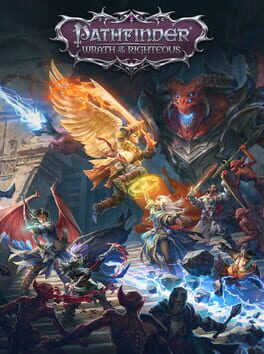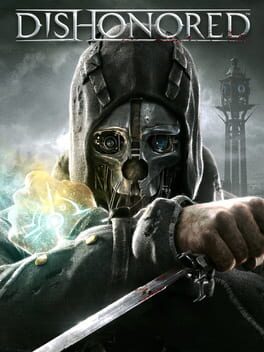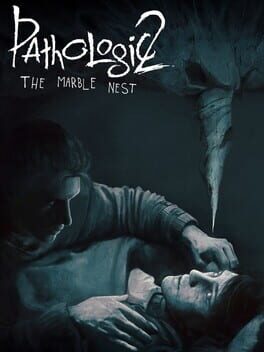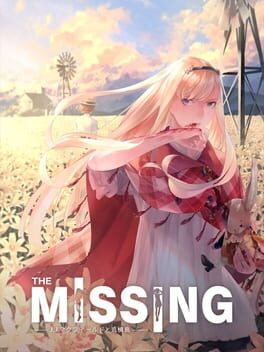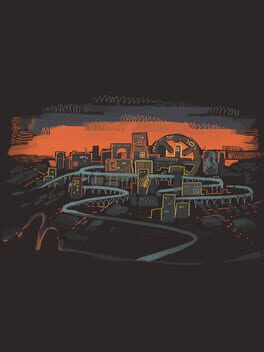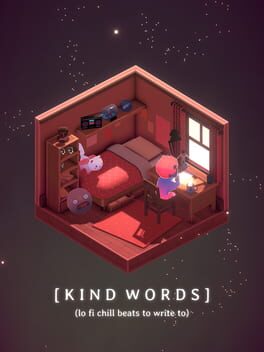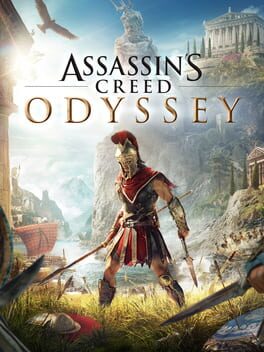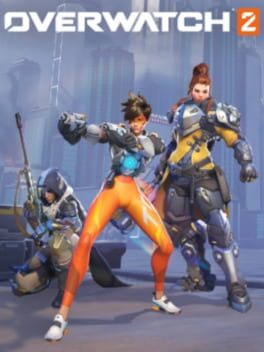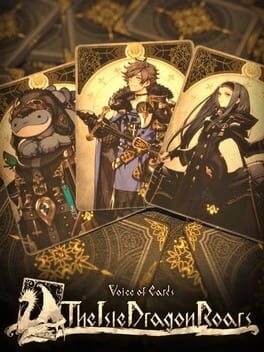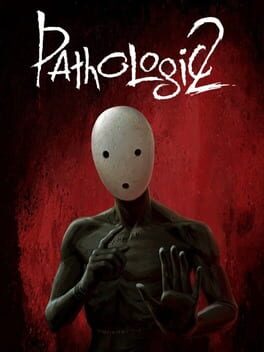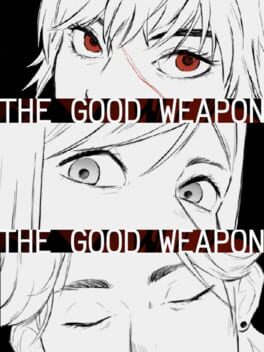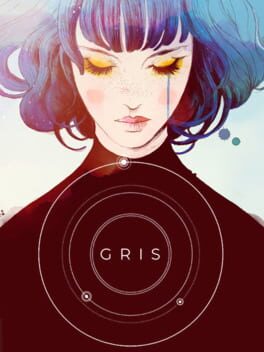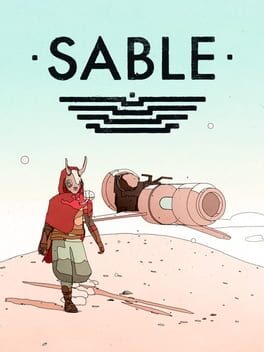katrinavalentina
Not a massive of the taditional CRPG genre, but this really does it for me. The party interactions, the roleplaying opportunities, the interconnecting systems; I'm about 45 hours in (restarted twice) and only gotten to the start of the third act (of five, and I think the first two are on the shorter sides). There's also some excellent voice acting, making what would be a usually quite generic band of companions ooze personality. The writing does fall short of fantastic sometimes, and at times it feels a little clunky, but I think that's to be quite expected with this many interlocking systems. My main caveat has to be that you are going to be worse at this game than you think - the harder modes are meant for people who are intimatley familiar with Pathfinder. The ability to personalise it really helps in this regard.
By far and aways FromSoft's best game. Dodges almost all the souls problems by remaking combat and making progression more linear. Sad to see the best of souls be cut - the cooperative elements - but the gains far outweigh the losses. The new combat system allows for harder bosses without movesets which feel unfair, unlike DS3 and Elden Ring.
2012
2/4 endings, can be a wonderful insight into the world and introduction before attempting the game proper. It gives a much more open look at an idea of the Bachelor's route than either Pathologic 2 or Pathologic 1 allowed - the variance is stark compared to what we know to happen in either, and I found it very intriguing exploring that. Overall, I loved it - what I wouldn't give to spend another minute with the smell of twyrine and the earth biting my heels - but at points it didn't feel like I was the Bachelor; there was no distinguishing feature outside of being set in the Stone Yard from this to the base game, and taking it as something in its own right (not just a thing in attachment to the Main Performance), it feels as if it fails to allow the personality of Dankovsky to really drip through. It's probably simply a matter of the length, but again, this is me taking it as a full product In Itself - not the free DLC it is presented as. As that, it is wonderful; a small snippet into a way that could be, a day that never ends, a few hours of eternity.
2020
goated game. soyjacked at the "line of flight" drop. you guys just don't fw adorno hard enough. crashed before i could see the end
seriously though, i do find myself kinda frustrated at concepts of post-irony/metamodernism/new sincerity or whatever. people are tired of "postmodernity" (something i have my own critiques of, even as i hate jameson for popularising the term but w/e) and feel we can simply move beyond, take a new step forwards, without really understanding what "postmodernism" tried to do; "postmodernism" becomes a mood, a vibe, an era, not anything actualised outside of a vague gesticulation. this game, however, is not a very good look at that. I just wish actually understanding foucault + derrida was required before you read fisher, because I think a look at the deployment of hyper-confessional and overwhelmingly sincere art of the 202X's would be interesting - something not really found here except as a handwave to thoughts and books picked up from crit theory 101.
seriously though, i do find myself kinda frustrated at concepts of post-irony/metamodernism/new sincerity or whatever. people are tired of "postmodernity" (something i have my own critiques of, even as i hate jameson for popularising the term but w/e) and feel we can simply move beyond, take a new step forwards, without really understanding what "postmodernism" tried to do; "postmodernism" becomes a mood, a vibe, an era, not anything actualised outside of a vague gesticulation. this game, however, is not a very good look at that. I just wish actually understanding foucault + derrida was required before you read fisher, because I think a look at the deployment of hyper-confessional and overwhelmingly sincere art of the 202X's would be interesting - something not really found here except as a handwave to thoughts and books picked up from crit theory 101.
2019
How can I review a game like this? Can I write without confessing, endlessly confessing, an acknowledgement of the fundamental lack? A performance beyond the screen, a perforation between lives. I divulge to a blank ear; the inscrutability of the reception to the confessional performance destroys the art of speaking, annihilating the relationship I have to the audience I spill guts to. I exsanguinate myself in front of a crowd, and yet at the same time the crowd spills over and beyond themselves; a closeness only available via anonymity.
I love the sticker they send, the initials they sign off, the attempt to re-assure for the sake of reassurance. A beautiful moment, self-contained, the care for someone who cannot be realised, a love which precedes specificity.
The game upsets notions of amor-ity, an attempt to recenter agape, perhaps. Does it fail by the unacknowledged double-ness of all interaction, the razorblade that accompanies a revelation? Maybe. But it also attempts to illicit a compassion that is so often denied, something that would've failed in any larger project, in any less of a pinhole-d design.
Do I confess to someone? Or do I confess only to myself? Who else can love like a stranger?
I love the sticker they send, the initials they sign off, the attempt to re-assure for the sake of reassurance. A beautiful moment, self-contained, the care for someone who cannot be realised, a love which precedes specificity.
The game upsets notions of amor-ity, an attempt to recenter agape, perhaps. Does it fail by the unacknowledged double-ness of all interaction, the razorblade that accompanies a revelation? Maybe. But it also attempts to illicit a compassion that is so often denied, something that would've failed in any larger project, in any less of a pinhole-d design.
Do I confess to someone? Or do I confess only to myself? Who else can love like a stranger?
2022
Obviously the microtransactions etc. are bad but at its core its a fun game. Hit GM, probably gonna try and hit it every season for the next couple, but the change from 6v6 to 5v5 has made it so much more DPS dominant; essentially, its a long form brawl until someone gets a pick even at the top level of ranked.
My fifth game in the trek through the Yoko Taro gameography. The music was excellent, as one would expect of Keiichi Okabe, and I loved the presentation of it. The characters where fleshed out enough to be entertaining and their interactions where fun, although slightly generically in line with Yoko's other works, and it worked surprisingly well for a game with only a single narrator - I thought it would grate on me, yet it felt far more relaxing than I had expected.
It was definitely the worst Yoko game I've played so far - or maybe the one with the least impact - but it was certainly enjoyable. I do not think that this style of game is for me particularly, having never been one for D&D styles.
It was definitely the worst Yoko game I've played so far - or maybe the one with the least impact - but it was certainly enjoyable. I do not think that this style of game is for me particularly, having never been one for D&D styles.
2019
This review contains spoilers
Not as good as the original. Oftentimes conversations feel meaningless and short in a way they didn't in the first, music is definitley a downgrade and some of the environments were more striking first time around. Obviously better with a lot of the presentation, and most of this is subjective, but it butchered Georgiy and Isidor in my opinion - some of the changes in story where uneeded.
There is still a lot to love here in comparision to the original; deeper mechanically and with how you interact with the world, and, if you'll excuse how overdones this statement is, makes the people feel more living. In the original it can feel like you can see the seams in the world with how stiff characters talk. However, I don't know if this is really a positive or not.
The best part of this game, by far for me, was walking slowly back into town after the death of Aglaya. It sticks with me in a way no other single scene was able to.
Excited to see the bachelors route and hopefully the changelings eventually.
There is still a lot to love here in comparision to the original; deeper mechanically and with how you interact with the world, and, if you'll excuse how overdones this statement is, makes the people feel more living. In the original it can feel like you can see the seams in the world with how stiff characters talk. However, I don't know if this is really a positive or not.
The best part of this game, by far for me, was walking slowly back into town after the death of Aglaya. It sticks with me in a way no other single scene was able to.
Excited to see the bachelors route and hopefully the changelings eventually.
2023
Idealistic and a semi-transcendentalist piece. Disliked the messaging and weird ideological conception - obviously rife with anti-vanguardist policy, but the conclusion cuts off it's nose to spite the face; fundamentally it re-inscribes the passivity of revolutionary liberalism back onto what it itself acknowledges as a violent process. It feels as if it cannot reckon with tools necessitated in a struggle, and is therefore always in a process of deferring responsibility/violence (both in alterity and futurity, to the other, to the space beyond). Caught in this contradiction - at once acknowledging the revolutionary nature of struggle and denying the struggle of revolution - it becomes a self effacing process; a bloodless revolution, a tenth of capitalism already killed - by what? what wounds were necessitated by such a process? The text cannot interrogate it - mysticising it into an ordinariness of mythical nature, a messianism that has already happened and yet is still to come - by whom? why not you, the nukes at your fingertips? In a certain sense, then, it forgets what cannot be forgotten - that which must be forgot in order for anything novel - the violence of forgetting that must be expelled and held. The ordinary is valourised without ever being encountered, the process left open, undetermined (idealised) and therefore endlessly critical, without any idea of what itself can do.
sorry this is gibberish. i just didn't like this very much.
the art is cute tho ^x^
sorry this is gibberish. i just didn't like this very much.
the art is cute tho ^x^
2018
For me, Gris was simply the right game at the right time. I picked it up near Christmas in 2018, at one of my lowest points, and I fell in love with it from its starting scene. It's watercolour palette and the use of the orchestra alongside the main voices and sparing use of organs stole me away, and I haven't looked back.
A lot of these reviews on this site critique its mechanical depth and how one dimensional it can be at times, but would it really have made it better? The fundamental misunderstanding, I feel, is that this isn't a platformer with nice music and art, it's designed to be centred around the synthesis of the art and music into a singular sublime experience - the platforming is simply a way to move through that. When I see the discussion on this subject, I ask myself "would this game be better with something like Celeste's focus on execution?" and I find myself always coming to a resounding no; a complex mechanical system would take focus away from what I think the game was supposed to truly be about.
On the subject of this ostentatiously named "singular sublime experience", I think it is rather wonderful. I've never really had a game which made me feel quite as Gris does, without the use of any real characters to speak of. It's somewhat heavy handed messaging on the five stages of grief and working through depression by the titular Gris is all too familiar and while the story treads a beaten path, the way it was told is unique to this game, using almost exclusivley the soundtrack and the art to tell it. I adored this, and I can understand why it's divisive - you either love it or find it dull as hell.
Personally for me, Gris is a game I've kept close to my heart nearing 4 years. I replay it every now and again, just to hear the starting song (Gris, Pt 1) as the title card is unveiled, or Perseverance match with the sandstorms' heights, Unagi in underwater caverns (yes I know the names of the OST songs shut up). Its undoubtedly my favourite game, but by far not the best I've played.
A lot of these reviews on this site critique its mechanical depth and how one dimensional it can be at times, but would it really have made it better? The fundamental misunderstanding, I feel, is that this isn't a platformer with nice music and art, it's designed to be centred around the synthesis of the art and music into a singular sublime experience - the platforming is simply a way to move through that. When I see the discussion on this subject, I ask myself "would this game be better with something like Celeste's focus on execution?" and I find myself always coming to a resounding no; a complex mechanical system would take focus away from what I think the game was supposed to truly be about.
On the subject of this ostentatiously named "singular sublime experience", I think it is rather wonderful. I've never really had a game which made me feel quite as Gris does, without the use of any real characters to speak of. It's somewhat heavy handed messaging on the five stages of grief and working through depression by the titular Gris is all too familiar and while the story treads a beaten path, the way it was told is unique to this game, using almost exclusivley the soundtrack and the art to tell it. I adored this, and I can understand why it's divisive - you either love it or find it dull as hell.
Personally for me, Gris is a game I've kept close to my heart nearing 4 years. I replay it every now and again, just to hear the starting song (Gris, Pt 1) as the title card is unveiled, or Perseverance match with the sandstorms' heights, Unagi in underwater caverns (yes I know the names of the OST songs shut up). Its undoubtedly my favourite game, but by far not the best I've played.
2021
Genuinely beautiful game, made me long for more games like this. The story is obvious and quite well trodden, but having everything in the world, all the side activities and little challenges tie into it made nothing feel like poorly spent time. The exploration is excellent - anything made off the bones of BOTW's system is - but I feel as if there could have been more extrinsic rewards for it. The vistas alone were often enough a reward for me. I wish that there could have been more recurring characters; I found Eliisabet when cleaning up activities, and I wish I could have found her while progressing throughout. Some of the areas were also quite barren, in terms of quests, vistas or anything gleamed from it really. The aerie was definitely my favourite.
On the performance, I couldn't give less of a shit about how poorly it runs, a common complaint you will see. It's not a game which suffers because of it, and it's pleasing to see them focus efforts on more important aspects of the game.
On the performance, I couldn't give less of a shit about how poorly it runs, a common complaint you will see. It's not a game which suffers because of it, and it's pleasing to see them focus efforts on more important aspects of the game.
